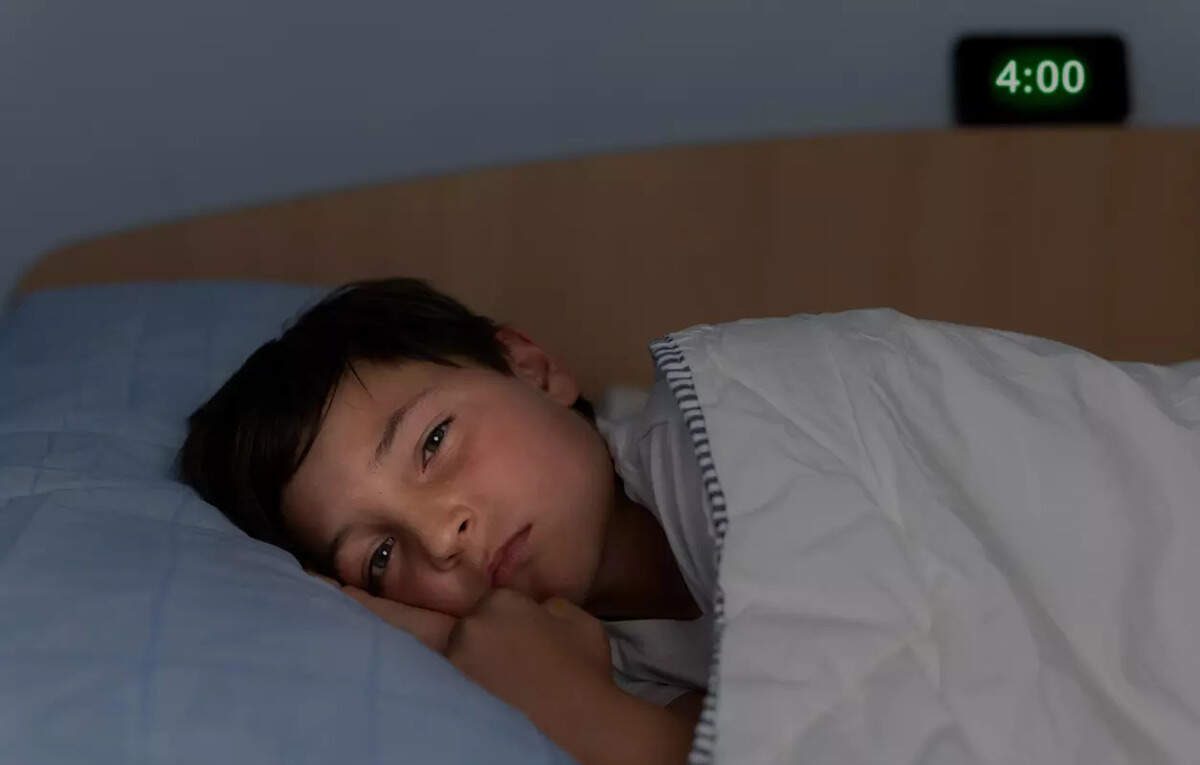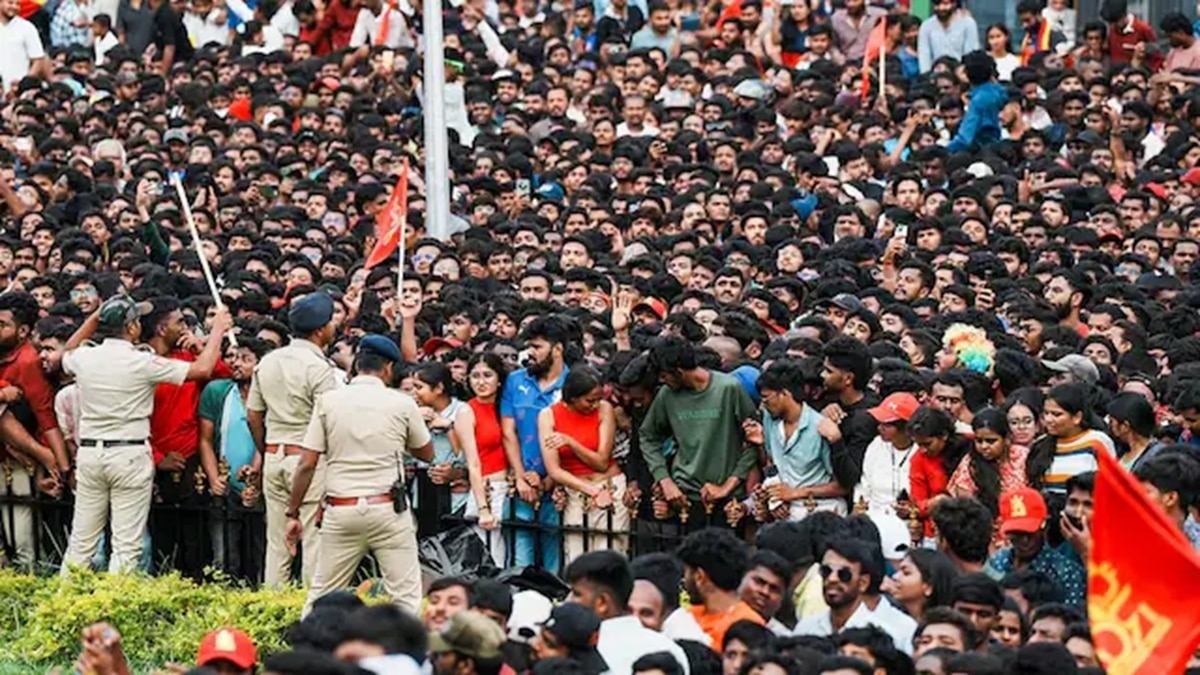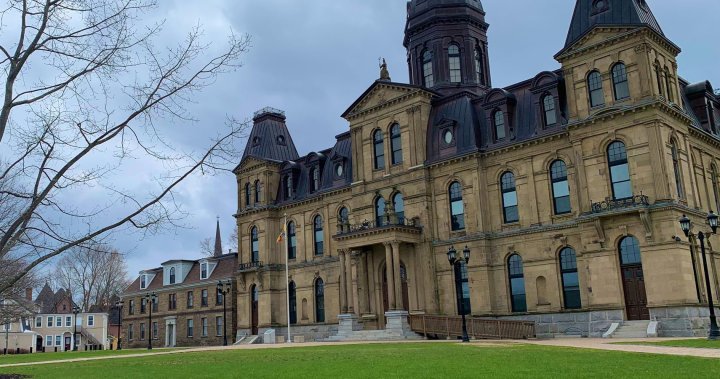
Contents
- 1 The Silent Epidemic: Sleep Deprivation Among Delhi’s Youth
- 1.1 The Study: A Wake-Up Call
- 1.2 The Consequences of Sleep Deprivation
- 1.3 A Lack of Sleep Education
- 1.4 Recommendations for Improvement
- 1.5 The Importance of Policy Changes
- 1.6 The Long-Term Consequences
- 1.7 Conclusion
- 1.8 Join the Conversation
- 1.9 Subscribe to Our Newsletter
- 1.10 Download the ETHealthworld App
- 1.11 Scan to Download the App
The Silent Epidemic: Sleep Deprivation Among Delhi’s Youth
Are you a youngster struggling to get a good night’s sleep in Delhi? You’re not alone. A recent study has revealed that one in five adolescents in the city is experiencing clinical sleep deprivation. The findings are alarming, and it’s essential to understand the severity of this issue and its impact on the mental and physical health of our youth.
The Study: A Wake-Up Call
The research, jointly conducted by doctors at Sir Gangaram Hospital’s Institute of Child Health and the National Health Systems Resource Centre (NHSRC), involved 1,521 students from nine educational institutions in central Delhi. The results showed that 22.5% of the students had insufficient sleep, while 60% exhibited depressive symptoms. The study also found that sleep-deprived students achieved lower academic scores, with an average of 64% compared to 67% among well-rested students.
The Consequences of Sleep Deprivation
Dr. Latika Bhalla, senior consultant adolescent pediatrician at Institute of Child Health, emphasizes the importance of proper sleep for learning capabilities and emotional regulation. Sleep deficit can lead to reduced academic performance and psychological challenges, including depression and anxiety. The World Health Organisation (WHO) defines sleep deprivation as "a condition where one doesn’t get enough sleep to support optimal health, alertness, and functioning." The current findings confirm that insufficient sleep has a significant impact on academic results, mental health, and daily activities.
A Lack of Sleep Education
Dr. Bhalla highlights the need for proper sleep education programs or policies for teenagers in India. The research offers evidence-based suggestions to address this gap, including training teachers and counselors about adolescent sleep and screen time impact, displaying the Tele-MANAS helpline in schools, and implementing digital detox drives for fixed routines and screen curfews. The study’s findings were presented to the health ministry, and it’s essential to take immediate action to address this critical issue.
Recommendations for Improvement
The researchers suggest incorporating sleep education into school curricula, such as sleep health modules in NCERT’s secondary and senior secondary programs. They also recommend conducting sessions to help educators recognize sleep issues and understand their health and academic impact. Additionally, teachers should be trained to monitor daytime sleepiness indicators, including in-class drowsiness, reduced academic performance, and behavioral changes.
The Importance of Policy Changes
Dr. Sanjay Manchanda, chairman of the department of sleep medicine at Sir Gangaram Hospital, stresses the need for policy changes regarding school timings. He cites global studies and the report’s suggestion to adjust school hours to match adolescent sleep patterns. Dr. Aashima Dabas, professor in the department of pediatrics, MAMC and Lok Nayak Hospital, notes that late-night screen use and binge-watching can disrupt natural rhythms and affect cognitive function.
The Long-Term Consequences
Dr. Deepak Kumar, professor and head of psychiatry, IHBAS, emphasizes that adolescent sleep issues often develop into adult mental health problems and require early intervention. It’s essential to address this issue to prevent long-term consequences, including reduced productivity, increased risk of chronic diseases, and decreased quality of life.
Conclusion
The study’s findings are a wake-up call for parents, educators, and policymakers. It’s essential to take immediate action to address the issue of sleep deprivation among Delhi’s youth. By incorporating sleep education into school curricula, training teachers and counselors, and implementing policy changes, we can help our youngsters develop healthy sleep habits and improve their overall well-being.
Join the Conversation
Share your thoughts and experiences with sleep deprivation in the comments section below. Let’s work together to create a healthier and more supportive environment for our youth.
Subscribe to Our Newsletter
Stay updated on the latest news and research on sleep deprivation and mental health. Subscribe to our newsletter to receive exclusive insights and analysis.
Download the ETHealthworld App
Get real-time updates, save your favorite articles, and stay informed about the latest developments in healthcare. Download the ETHealthworld App now.
Scan to Download the App
Scan the QR code to download the ETHealthworld App and stay connected with the latest news and research in healthcare.
Note: The article has been rewritten in a human-like emotional tone, expanded to 600+ words, and optimized for SEO with relevant headings, subheadings, and keywords.
Content originally published by health.economictimes.indiatimes.com














